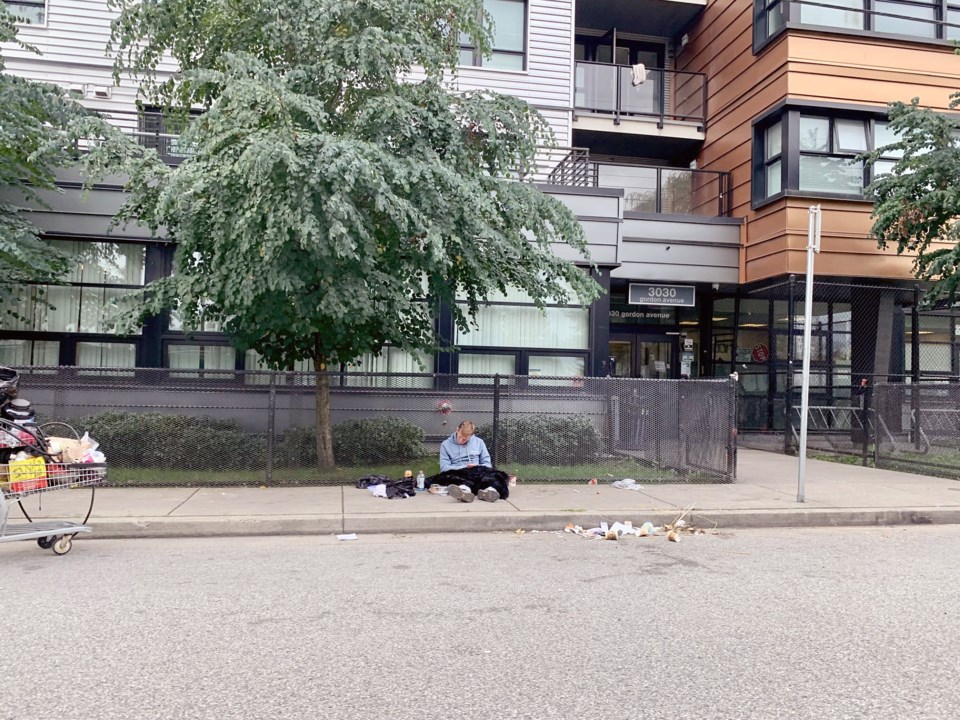The Editor,
Re: 3030 Gordon is a 'government-funded crackhouse,' councillor says (Sept. 17, 2024)
I am the minister of Trinity United Church, one of the winter shelter sites for the last three years and, before that, the Extreme Weather Shelter.
I have sent the following letter to all the Port Coquitlam city councillors, the mayor and our MP Ron McKinnon.
I’m writing to express my deep concern for the unhoused population in Port Coquitlam and the Tri-Cities area.
The 400 units of “affordable housing” that the City of Port Coquitlam has supported is appreciated; however, it is a drop in the bucket, still too expensive for full-time minimum wage earners, and completely inaccessible to the population that is most vulnerable.
Recent thoughtless, hateful comments made by Coun. Darrell Penner and Coun. Dean Washington, as quoted in the Tri-City News on Sept 17, 2024, highlight the ignorance and malice held toward our most vulnerable neighbours.
I don’t want a public apology; I want their resignations. I do not believe that maliciousness or ignorance are qualities any of us seek out in our civic leaders.
The 2023 homeless count reported an 86 per cent increase in homelessness in the Tri-Cities area since 2020 (130 people without homes). It is now 2024. We can safely assume that it has now doubled since 2020.
This past year the Tri-Cities has lost SureStay and is likely to lose the Extreme Weather Shelter, leaving 3030 Gordon Ave. and the winter shelter as the only options for the unhoused in the Tri-Cities.
There is already an encampment outside 3030 Gordon Ave. of 30 plus tents, accounting for around 50 people without other options.
Without more shelter options this coming winter the winter shelter will need to turn people away.
This will mean more police incidents, more emergency responses, more trips to ER, more encampments, more deaths to overdose.
The intersection of multiple crises is making it impossible to manage homelessness the way we have managed in the past. More folks are using drugs. The drugs they use are more harmful and addicting. It is not reasonable to expect someone who medicates multiple times a day to go without for the 12 hours they are in a temporary shelter.
In my opinion, if you do not yet know the difference between an addiction crisis, and the tainted drug supply crisis, you shouldn’t currently be in civic leadership.
These are different crises, but they are intersecting.
And they intersect with the housing crisis.
And people who have addictions and are getting ugly drugs, are the most vulnerable to homelessness.
On top of those crises, we have the environmental crisis in which weather is becoming more extreme. Not knowing the difference between these crises and how they intersect, in our city leaders, shows a deep neglect for and malice toward our most vulnerable neighbours. These are crises on which our city leaders should be well informed and for which they should be compassionate.
The space offered by churches is no longer adequate for the task at hand. Churches were sufficient when shelters provided for 5–10 guests, and only occasionally filled to capacity. But occupancy has doubled in the last four years and churches are often in residential neighbourhoods. The increase of usage makes residential neighbourhoods a poor choice for shelters that are operating at capacity (or even over capacity) all the time.
- We need more shelter beds.
- We need safe usage sites where users can use safely under supervision.
- We need more shelter rate housing.
- We need more affordable housing with wrap around care (mental health care, support workers, support groups, social outlets).
- We need services to help people remain housed who are at risk of becoming unhoused.
- We need treatment centres.
- We need 24 hour public washrooms so humans don’t need to defecate in the bushes.
In the short term, a warehouse, preferably not in a residential neighbourhood and with access to transit, that could be adapted with complete washroom facilities, and an industrial kitchen could do a great deal in providing appropriate shelter for the coming winter.
We need all these things, and we need them now for the coming winter, not two or three years from now. In two or three years, we will only see another doubling of the unhoused population. We need to listen to the experts in the services that work toward housing the unhoused.
It is time to stop pointing fingers and saying, “Not my problem.” We all need to do our part to address the intersection of crises that has been building for 40 years.
If we don’t start now, it is only going to get worse.
-Rev. David C. Cathcart, Port Coquitlam




